Question Number 103888 by mr W last updated on 18/Jul/20
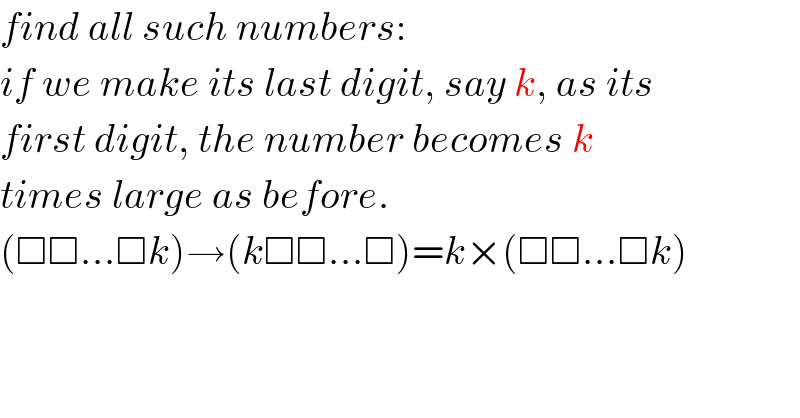
Answered by MAB last updated on 18/Jul/20
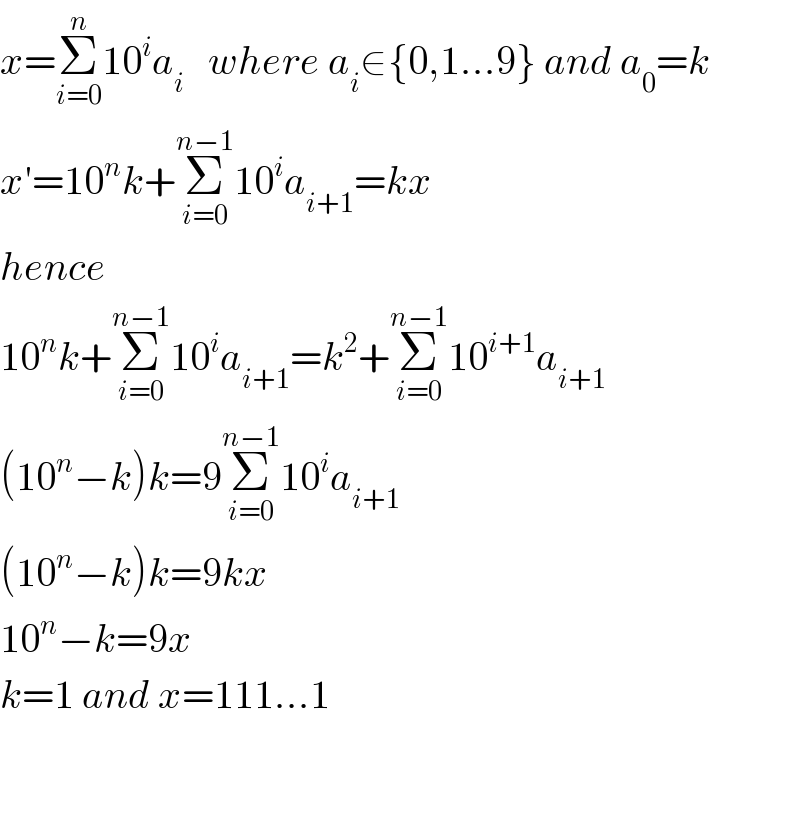
Commented by mr W last updated on 18/Jul/20

Answered by mr W last updated on 18/Jul/20
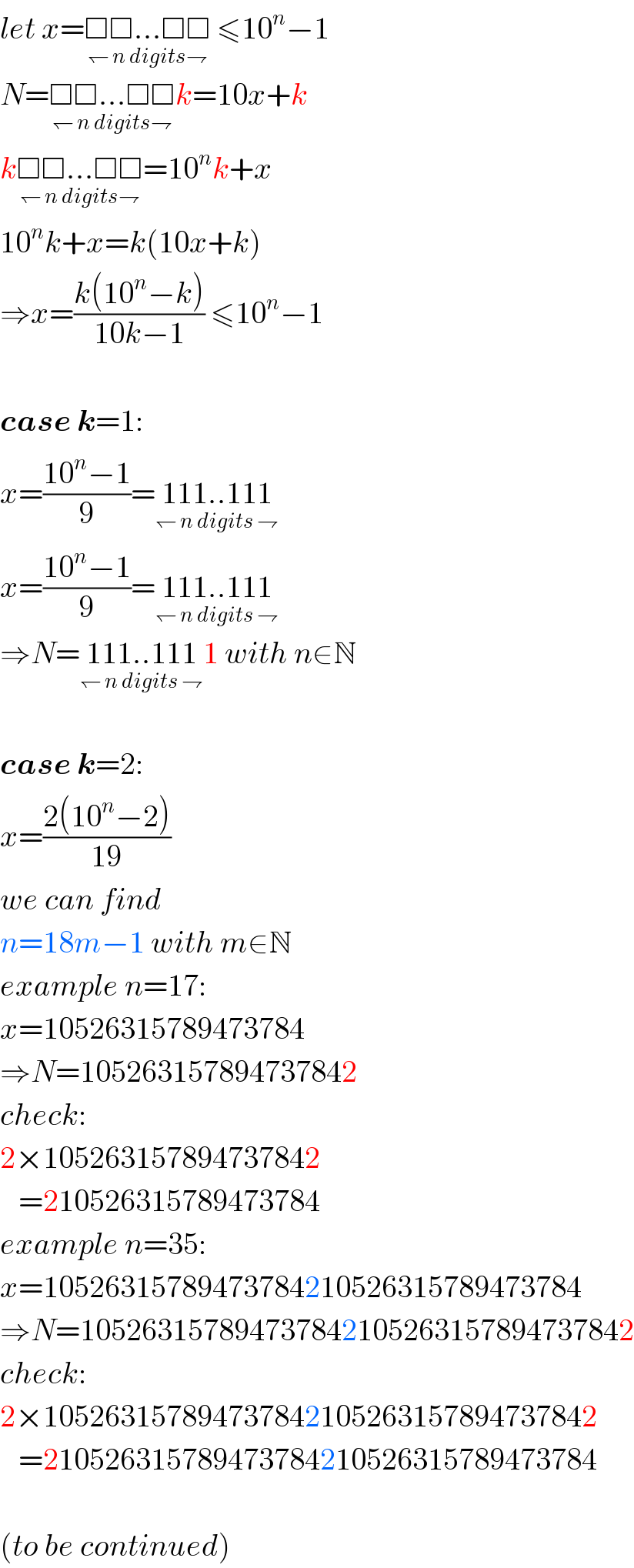
Commented by mr W last updated on 18/Jul/20
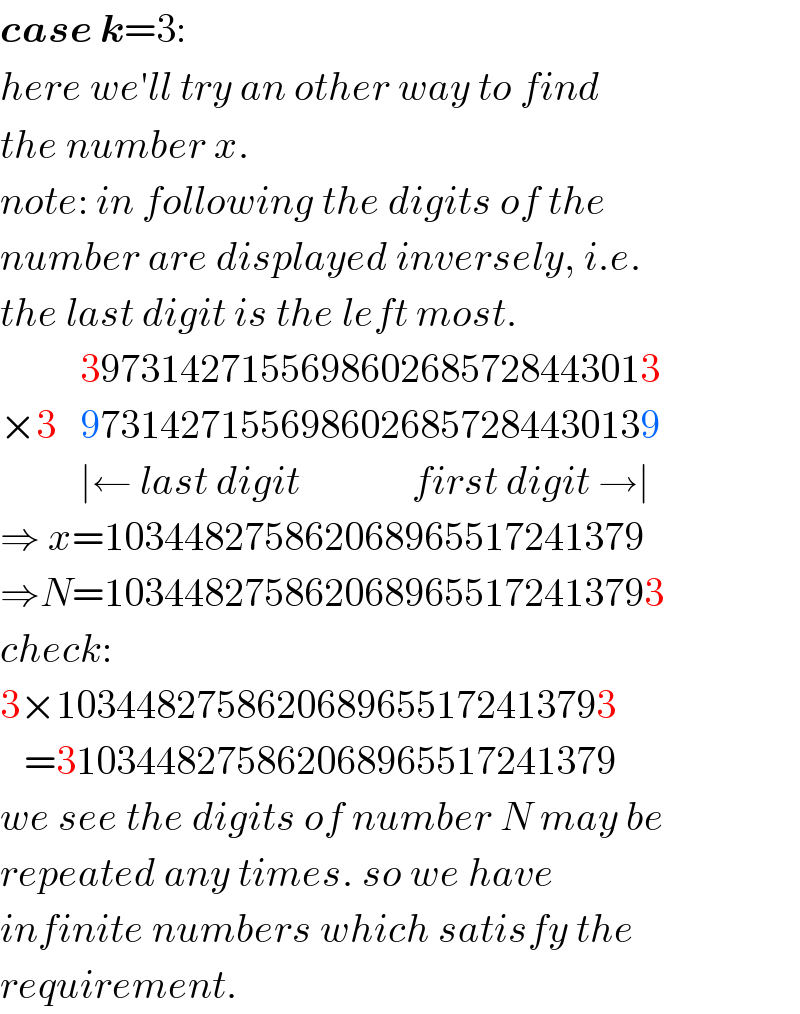
Commented by mr W last updated on 18/Jul/20
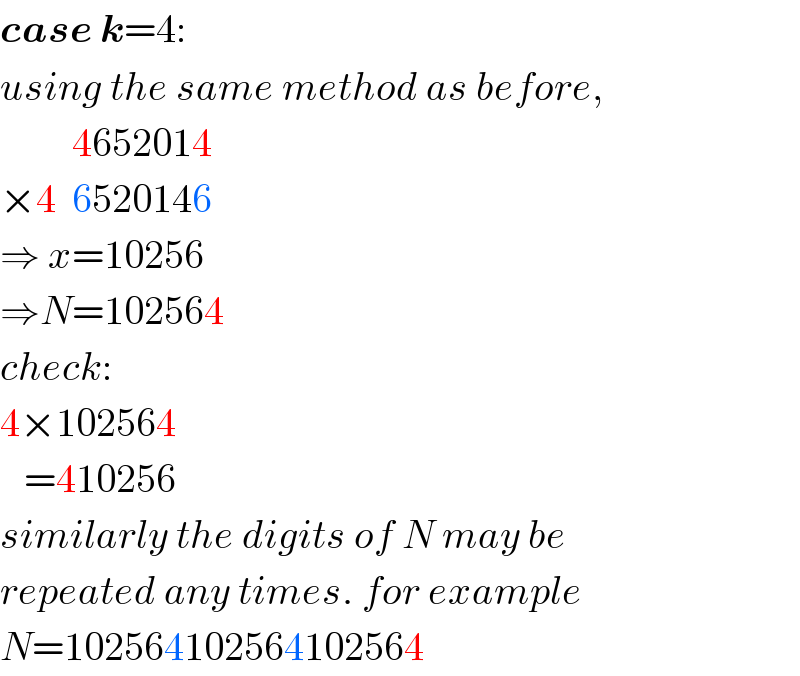
Commented by mr W last updated on 18/Jul/20

Commented by mr W last updated on 19/Jul/20

